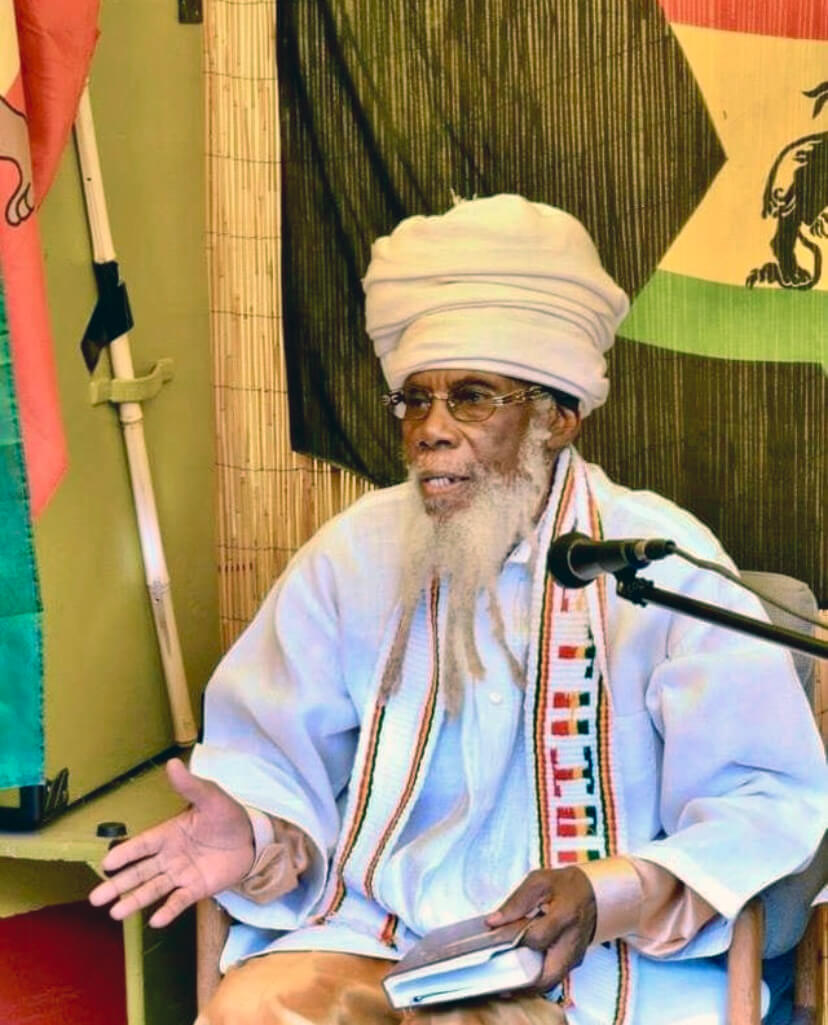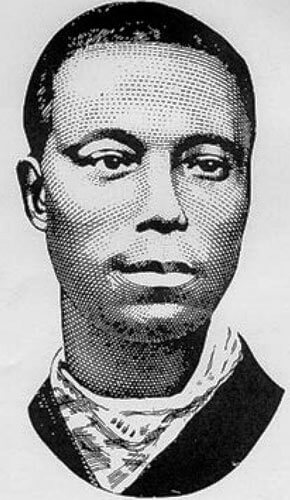Rastafarian elder, reggae singer and nyahbinghi drummer, Ras Michael takes no prisoners when he claims that “Haile Selassie I is not God.”
Ras Michael is not new to the teachings of Rasta. In 1976, he recorded his Rasta anthem, “A new Name Jah have,” his most popular song to date that spoke powerfully about “Jah” (Rastafari).
“How excellent is thy name/Thou have set thy glory above the heavens/A new name Jah got/And it terrible among men/Heathen no like Jah name,” the lyrics says.
The 79-year-old, Jamaican-born, California-based Ras Michael first embraced Rastafari in the late 1950s.
“His new found ‘Rasta Christian’ belief runs contrary to faithful followers of the Rastafari movement who worship Haile Selassie as God incarnated,” Jamaican Anthony Turner, a New York-based entertainment publicist, told Caribbean Life over the weekend.
“The Rastafarian religion developed in Jamaica in the 1950s through the philosophy of Marcus Garvey, who taught about the coming of a Black King,” he added. “Selassie’s ascension to Emperor of Ethiopia was seen as fulfillment of Garvey’s prophecy and proof of Selassie’s divine status.”
Born in the Parish of St. Mary, Jamaica, Ras Michael, as a teenager, moved with his Christian mother and siblings to Waterhouse in Kingston, the Jamaican capital, where he met Rasta “brethrens”, including Mortimer Planno, who convinced him about the virtues of joining the Rastafarian movement, Turner said.
He said Ras Michael’s group, Ras Michael and his Sons of Negus, came to prominence in the 1960s as a key element in the African/Rastas/reggae music movement that originated in Jamaica.
Turner said Michael would later work with artists like Bob Marley, Peter Tosh, The Wailers, Jimmy Cliff, Burning Spear, Roberta Flack and Stevie Wonder.
“Ras Michael, like thousands of his Rastafarian brothers, actually saw Selassie on his maiden trip to Jamaica in 1966,” Turner said. “Bob Marley’s widow, Rita Marley, who was a young girl when Selassie visited Jamaica echoed the belief of many Rastafarians when she told Washington Post journalist Timothy White in 1982, ‘When Selassie’s motorcade passed by me in 1966, and he waved, I saw the nail prints in his hands — just like Christ’s.’
“Michael acknowledged that while Selassie showed respect to the Rastafarians whom he came in contact with in Jamaica, he made it very clear to them that he was not God,” Turner added.
“I was there, and some man started to cuss and burn a fire,” Turner quoted Ras Michael as recalling about what transpired when Selassie told the gathering that he was not God.
“Some listened to come to a better understanding,” Ras Michael added. “Even myself started to question whether Selassie was God. I could not comprehend. Christ, however, has always acknowledged who he is.”
“After all, Haile Selassie was a Christian man, who did not adhere to Rastafarian teachings,” Turner said.
“We Rastafarians wanted to give him (Selassie) what he was due,” Ras Michael said. “However, worshiping him as God could not be.”
Ras Michael is still active as a reggae recorder and live performer. His new album, released this year, “Jah Love,” features American instrumentalist Steve Verhault.
In January, Ras Michael said he launched an Instagram program, “Iamrasmichael”, viewed live on Tuesdays, Thursdays and Saturdays, to continue his teachings about Rastafari and Christianity to followers.
























